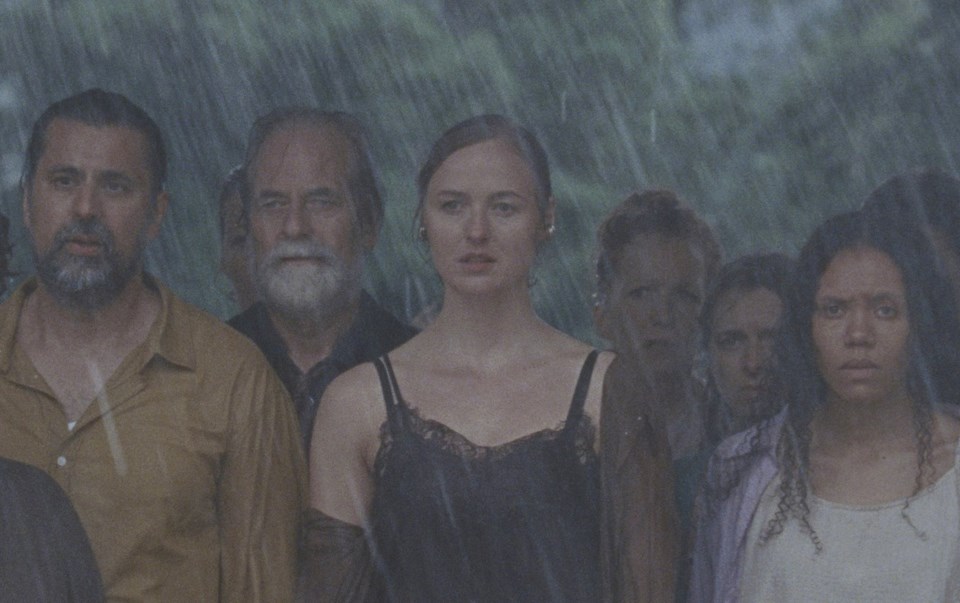A mother is called to her childâs school for an urgent meeting with his teachers in the a riff on a claustrophobic courtroom thriller set in a primary school classroom.
The film, which won the best first feature prize at , dolls out bits and pieces of information slowly and purposefully, building not a solid set of answers but a web of complications and ambiguities. It is a strange and fascinating experience that may be a bit frustratingly inconclusive but is never not compelling.
Even the inciting incident is withheld from the audience for a time. Weâre thrown into a conversation between a junior teacher, Sunna (Thea Lambrechts Vaulen), an administrator type Asja (Vera Veljovic) and the schoolâs principal, Jarle (Ãysten Røger). Asja and Jarle are entrusting Sunna to lead this conversation (though they'll have to join eventually). None of them are even quite sure what exactly happened, whether it was innocent or malicious, or what to do if they can get to the bottom of it. Jarle advises Sunna to treat it soberly, whatever thatâs supposed to mean.
Not even Armandâs mother Elisabeth ( ) gets a hint as to what the meeting is about. Sheâs a famous actress whose career has come to a halt and who has been tabloid fodder recently. Elisabeth arrives at the classroom first and wants answers, understandably. Sunna must awkwardly delay providing any information until the other parents arrive to Elisabethâs increasing frustration. Sunna even stammers something reassuring that itâs not too bad. She is, of course, lying because the accusation is serious and beyond any of their depths. Armandâs classmate Jon has apparently told his parents, Sarah (Ellen Dorrit Petersen) and Anders (Endre Hellestve) that Armand has sexually abused and threatened him. Theyâre both 6-year-olds.
These arenât just schoolmates either but cousins and thatâs only the tip of the iceberg of trauma and shared history in this room, haunted by characters who arenât even present: Armand and his dead father, Thomas. Neither of the kids is shown through the duration, and thereâs much debate over whether 6-year-olds would use the language that the adults allege.
âArmandâ is the directorial debut of writer-director Halfdan Ullmann Tøndel, who has the daunting pressure of being a descendant of cinema royalty. As if making a movie isnât hard enough on its own, Tøndelâs grandparents are Liv Ullmann and Ingmar Bergman. And perhaps because of that âArmandâ pushes away from the conventions of a straightforward, talky character study and plays with our perception of reality. Twice Elisabeth breaks into choreographed dance â both expressions of her emotional state and one of which takes a particularly sinister turn.
One might expect that two unexpected dance sequences would be the standouts in a film, but âArmandâ has another. Itâs also a release, in a way. After a while of back and forth, debates, reveals and non-starters, Elisabeth breaks out into uncontrollable laughter. This stretches on for several agonizing, astonishingly impressive minutes of mad exertion. Itâs really quite an acting marvel from Reinsve â and everyone else in the scene watching it all play out. A broken fire alarm that goes off sporadically helps keep the atmosphere nice and tense, as does Asjaâs random nose bleeds that always seem to derail pivotal decision-making moments.
âArmandâ engages in some stylish wheel spinning, broken up by some revelations and cathartic moments. And yet every time you feel like you have a grasp on the situation, something else arises that seems to undermine it. Ambiguity and inconclusiveness can be satisfying in cinematic storytelling, but this feels a little too underbaked either way. Ideas are introduced and abandoned, or not fleshed out well. Why, exactly, has she stopped working, for instance. And whatâs the story behind Andersâ and Elisabethâs relationship? Itâs a promising debut from Tøndel, nonetheless â a film that will keep you engaged if not entirely satisfied.
âArmand,â an IFC Films release in theaters Friday, is rated R by the Motion Picture Association for âsexual material and some language.â Running time: 116 minutes. Two and a half stars out of four.
Lindsey Bahr, The Associated Press



